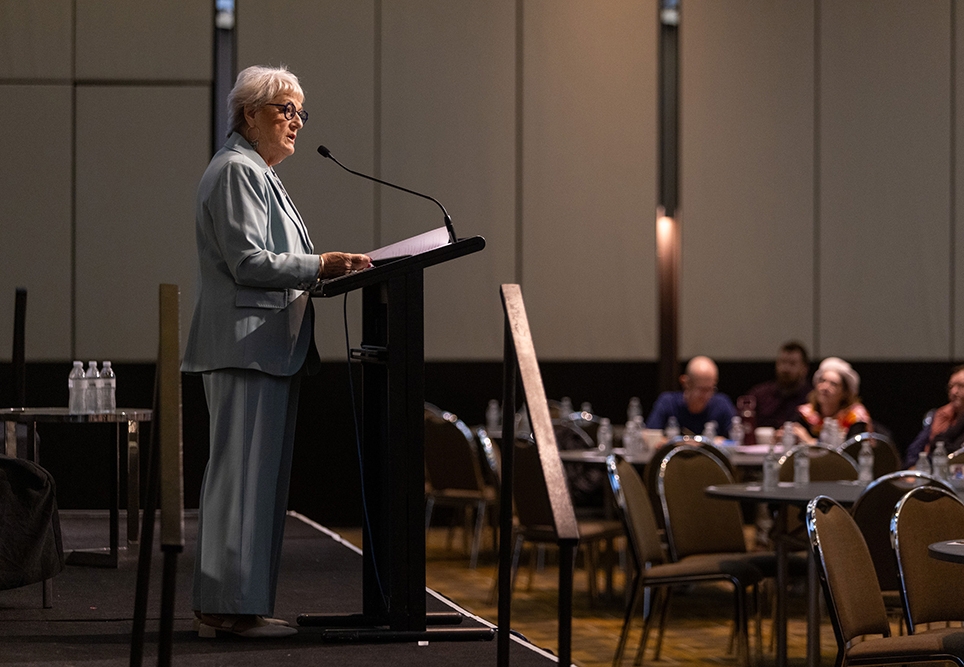
Throughout my years working in remote health care, I’ve met many rural and remote health workers who have shared their stories about struggles maintaining intimate relationships. Long hours, geographical isolation, on-call schedules, and physical distance from partners can strain even the strongest relationships.
The impact of physical distance
People in intimate relationships often share everyday rituals to maintain connection.
These acts of connection may go unnoticed as they are usually so ingrained in daily life. Shared evening meals or morning walks with the dogs are examples of ‘rituals’ that help maintain and build connection with intimate partner(s).
Health workers in remote areas often face separation from their partners due to FIFO arrangements or temporary contracts. This physical distance can amplify feelings of loneliness and uncertainty in the relationship, as everyday rituals to maintain connection
are disrupted and sometimes impossible.
Even simple, non-verbal communication, like a hug at the end of the day, cannot be replicated through phone or video calls, leaving partners reliant on verbal communication through screens or phones. However, we know this doesn’t create the same feeling of connection that physical touch does.
Emotional exhaustion
For those living together in rural and remote areas, the challenges can be different but similarly impact connection. Working in high-pressure, resource-limited environments can leave people feeling emotionally drained after a day at work.
This exhaustion can lead to withdrawal from others, leaving little energy for meaningful connection. As a result, partners may feel neglected and even simple rituals, such as watching a film or cooking a meal together, can slowly fall away.
Social isolation
Social isolation is a significant issue for those living in small, remote communities. Health workers and their partners may struggle to establish support networks, with opportunities for social interactions extremely limited.
Support and validation from social networks are crucial when experiencing relationship challenges. Without the opportunity to sit down and debrief with friends or family, issues in the relationship can compound, leading to feelings of resentment.
Partners who relocate with health workers may experience a loss of purpose if they are not employed, compounding their isolation.
Moreover, the lack of opportunities to ‘date’ your partner can make it difficult to maintain and strengthen emotional connections.

Strategies for connection
Dr John and Julie Gottman’s 40 years of research into managing relationships offer valuable, user-friendly tools for maintaining connection with intimate partners. Their approach emphasises building an emotional ‘bank account’ of positive interactions and managing conflict in a healthy way.
1. Building a strong emotional foundation
Maintaining a solid emotional foundation
is essential for health workers in rural and remote areas, especially when physical distance separates partners. Small, consistent gestures, like sending thoughtful messages or sharing the highs and lows of the day, can significantly bridge the emotional gap. Simple texts like “I miss you” or “I’m proud of you” can reinforce emotional bonds during physical separation.
The free Gottman Card Decks app is a great tool for engaging in deeper conversations and main-taining emotional connection. Using prompts from the app during Facetime or phone calls can help partners stay emotionally engaged, even with significant geographical distance.
2. Turning towards instead of away
Gottman’s concept of ‘turning towards’ a partner’s ‘bids’ for connection is key to maintaining intimate relationships. Bids can take many forms, for example, sending a funny meme to your partner(s) or simply asking, “How was your day?”
The State of the Union meeting, a weekly check-in recommended by the Gottmans, provides a structured way for couples to reflect on the week, express appreciation, and address concerns. Dedicating just 15 minutes weekly to this can help partners stay emotionally connected and strengthen intimacy, even when physically apart. See below for details.
3. Managing conflict with compassion
Conflict is natural and healthy in any relationship, but in the context of rural and remote health work, conflict in relationships can be exacerbated by isolation and stress. The Gottmans identify destructive behaviours, known as the Four Horsemen – criticism, contempt, defensiveness, and stonewalling – that predict relationship breakdowns.
In remote settings, where communication may already be strained, it’s essential to be mindful of these behaviours. Instead of criticising, partners can use ‘gentle start-ups’ to address issues. For example, saying, “I feel lonely when we don’t talk at the start or end of the day,” is more constructive than, “You never make time for me.”
Regular check-ins help prevent unhealthy conflict from escalating and provide a space to express frustrations without letting them build into more significant issues. Acknowledging your partner’s perspective and taking ownership of your role in the conflict can also help de-escalate actual or potential tension.
4. Nurturing shared meaning
Gottman therapy stresses the importance of creating a shared sense of purpose. This might involve discussing long-term goals or rituals that reinforce the relationship. Setting mutual goals, such as planning trips during time off, helps keep the relationship future-focused.
Even small rituals, such as watching the same TV series or reading the same book and discussing it during a phone call, can maintain a sense of togetherness.
5. Repairing ruptures
Prolonged separations or misunderstandings can lead to avoidance and emotional disconnection. The Gottmans highlight the importance of repair attempts – actions that re-establish connection after conflict.
These might include humour, an apology, or simply acknowledging the strain both partners are feeling.
For example, a partner might say, “I know things have been tough lately, though I’m committed to making this work. Let’s figure out how we can do better together.” Small gestures like these reinforce commitment to making the relationship work.

Seeking support
External support may also be invaluable. Professional counselling can provide tools to navigate relationship challenges, whether in-person or via telehealth.
Also, the CRANAplus Bush Support Line is a free service available 24/7 to support healthcare workers, their families, and the emerging workforce with personal, as well as professional, challenges.
Remember, maintaining a relationship isn’t just about coping with challenges; it’s also about celebrating your strengths and how far you have come in your relationship(s).

References
- Parker, S., Fruhen, L., Burton, C., McQuade, S., Loveny, J., Griffin, M., Page, A., Chikritzhs, T., Crock, S., Jorritsma, K., & Esmond, J. (2018). Impact of FIFO work arrangements on the mental health and wellbeing of FIFO workers.
- Gottman, J. M., Cole, C., Cole, D. L., Chambers,
- A.L., Lebow, J. L., & Breunlin, D. C. (2019). Encyclopedia of Couple and Family Therapy. In (pp. 1212-1216). Springer International Publishing. https://doi.org/10.1007/978-3-…
- Benson, K. (2024). How to Strengthen Your Relationship with State of the Union Meetings. The Gottman Institute. Retrieved 29th December from https://www.gottman.com/blog/s…
- Gottman Couples Therapy: The Science of Lasting Love. (2013). Eau Claire, WI, PESI Inc.
Laura Berry is a registered nurse with more than 13 years of experience in mental, sexual, and reproductive health. Laura is also studying to become a Nurse Practitioner and is a dedicated advocate for building and maintaining a sustainable rural and remote healthcare workforce. Laura has completed Gottman Therapy training and advanced education in psychosexual therapy. She brings an in-depth understanding of evidence-based strategies to help individuals and couples navigate relationship challenges, build resilience, strengthen communication, and foster a deeper appreciation for one another.


